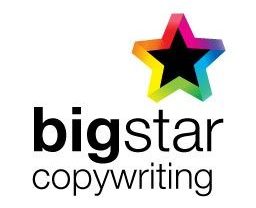
Are you looking for a career change? Or has writing always been a passion you’ve wanted to follow? Well, we’ve got you covered. Here’s our guide on how to become a copywriter in the UK.
The copywriting landscape
Following the coronavirus pandemic, the freedom of working from home and making your own hours as a freelancer has become more and more desirable. Four years on, and the flexibility that comes with homeworking has undoubtedly stuck. Fortunately, those who wish to embark on a career as a copywriter are in luck.
According to Forbes, copywriting is in high demand, with businesses and brands relying on compelling copy to dominate their content marketing strategy: “The businesses making the most sales, especially in the e-commerce and direct response space, are all using long-form copy.”
But how do you break into the industry here in the UK and succeed as a copywriter? Keep reading for our top tips. But first, let’s take a look at what it means to be a copywriter.
Maximise keyword rankings & boost website traffic
Do you want to master the art of writing for SEO? Use our free SEO checklist as a guide for any piece of content you write.
What is a copywriter?
When Big Star first started back in the glorious pre-banking crisis, pre-iPhone, pre-social media, pre-pandemic days of 2006, most people thought of a copywriter in the old “Mad Men” context as the wordsmith in an advertising agency or perhaps writing long sales letters for direct response. As SEO became a thing, a distinction emerged between “content writer” and “copywriter”. Big Star Copywriting, for example, was originally Big Star Content because we aligned ourselves with search agencies and SEO departments, and much of our work was creating optimised blogs and landing pages in large volume.
I think that distinction has largely broken down now, and the term copywriter is now a catch-all for someone who “does the words” – for websites, press releases, clever ad slogans, blogs, presentations – anywhere within the marketing and communications function of a business or organisation where words are required.

What I think is crucial to understanding copywriting is that the words are written with the intention of persuading people to take a particular action. In this sense, it’s not like poetry, fiction, or non-fiction writing. Its success is judged on the achievement of a specific outcome – whether that’s improved search rankings, more clickthroughs from a link, email sign-ups, questionnaire responses – or just more sales.
While a lot of good copywriting requires creativity, first and foremost, a copywriter must be able to effectively communicate with their audience and successfully sell a brand’s products or services. To do this, a copywriter’s words must pack a punch; they must be engaging, informative, convincing, and – nine times out of ten – optimised for SEO.
The different types of copywriting roles
Copywriting isn’t a one-size-fits-all career path. While different brands will structure their copywriting roles to meet the unique needs of their business, copywriting is also an umbrella term for a whole load of niches and particulars that fall beneath it. In the copywriting industry, there are a vast amount of copywriting avenues waiting to be explored. Wordtune created this handy infographic that sums up these different career paths from specialised in-house copywriters to’ jack-of-all-trades’ freelancers.

First and foremost, can you actually write?
You may have studied the above infographic and thought, “Yeah, I can do a few of those things,” but the real question is, can you actually write well? This may seem obvious, but many people looking to enter the industry are actually attracted to the idea of being a copywriter for reasons like working from home, making money, and working for certain industries like fashion, music, travel, etc.
Those are all very well, but you need to start with a passion for writing as the centre of your motivation. Actually, it is not just a passion for writing but a level of ability and understanding of what makes good writing. Sure, you can improve your skills, learn techniques, and read David Ogilvy’s sage words, but if that’s not underpinned by a love of words and an appreciation for writing in all its forms, then you’re choosing a hard path. Like being a chef who is ambivalent about food. Think about this carefully whilst researching how to become a copywriter.
I would suggest that to embark on a career as a copywriter you need to be someone who reads a lot, who at the very least enjoys writing a journal, a blog or a diary (if not more ambitious pieces of work) and has achieved good results in related English qualifications, probably to A Level if not further. Or some combination of these.
Speak to us about your project

We’re a small, talented copywriting agency that packs a punch, working side-by-side with business owners, CMOs and senior marketing professionals to help you achieve more with your content marketing and SEO.
Whatever your content challenge, we can help

A note on this: in my opinion, good writing doesn’t necessarily equate with accurate grammar and spelling. You can learn those skills and employ editing and proofreading processes to ensure your work is accurate. What is more challenging to learn is a flair for the written word – if that doesn’t come naturally, then maybe you’re headed in the wrong direction.
One final comment – copywriting is not novel writing, screenplay writing, journalism, etc. It requires a different skill set that is as much about understanding businesses and organisations as it is about using the right words. I think much of the skill of it is in discovering what the client wants to communicate and finding the best way to do that. It’s collaborative. It’s functional. And it often involves huge compromises.
OK – now that’s out of the way, let’s look at the next steps.
How to become a copywriter in the UK – Step-by-step guide
Get to know the industry
To thrive in any industry, you must get to know it back to front. Dedicate time to staying on top of current and upcoming industry trends, topics and news. Look at online news journals and content marketing platforms, blogs, YouTube, social media and even podcasts. Think about making this part of your routine and get into the habit of consuming these reports, articles and posts for ten minutes every day alongside your morning coffee. Some of our favourites include Moz.com, EConsultancy.com and Copyblogger.com for insight into how content creation fits into the marketing world.
Figure out what sort of copywriter you want to be
Before the majority of content marketing went online, being a copywriter meant scripting TV commercials in an ad agency, writing direct mail campaigns, and producing press releases, brochures and other business literature. Yes, those jobs still exist, but now, businesses are more likely to search for web editors, SEO copywriters, content managers and other online content roles. Make sure you understand what’s involved in the position you are applying for and upskill accordingly on your journey to becoming a copywriter.

Your experience and transferrable skills
If you haven’t any experience as a copywriter, first, you want to turn to the skills you have already and make sure they’re transferable. According to Reed, a good copywriter will need to have excellent English skills, be rather creative, and possess the ability to write clearly and persuasively for various audiences and situations. Sticklers for grammar and punctuation also tick the box.
A good copywriter will also need to have the following attributes:
- Imagination
- Accuracy
- The ability to work under pressure
- Attention to detail
- Patience
- Excellent communication skills
Think about how your past roles and responsibilities have helped you develop some or all of these skills and draw on these experiences to set the groundwork for a successful career in copywriting. As long as you can demonstrate these attributes, you’re on to a win. Experience in the industry can be gained, and copywriting specifics can be taught – it’s never too late to learn.
It’s time to upskill
The easiest way to upskill. Write every day. Sounds simple, right?
Practice makes perfect. Top athletes practice every day. So should copywriters. But there are also other things you can do to level up your copywriting game. Here are a few practical tips for how to become a copywriter that you may not have thought of:
- Write outside the job. Maybe journaling or blogging is for you, or perhaps writing poetry or short stories is more your thing. Write for yourself, not just the job, and get your name out there while doing so. I take to Instagram and LinkedIn to blog my thoughts on various things, pushing myself to create compelling copy around three times a week. And trust me, it’s paid off.
- Keep a folder of great copywriting. I have a note in my phone full of links and screenshots of some of my favourite, laugh-out-loud funny and inspiring copy. Create your very own content bible and turn to it when you need some inspiration later on.
- And read a lot. The most prestigious writers are always the most prodigious readers. Push yourself to read books a little out of your comfort zone, as well as delving into fiction you love. There are also some excellent copywriting books out there. We wrote a blog with our top five recommendations here.
- Reflect on what you read. Start noticing ad copy, news headlines, editorial, commentary, long-form copy, brochures – every piece of content marketing you see. Think: what do you like about it? What don’t you like? Why?
- Short courses are also a great option. From HubSpot to Google, the internet is your oyster for hundreds of free and paid courses that will show you the ins and outs of the industry. If you’re dreaming of writing website copy, a course in SEO copywriting might be perfect for you. Or, if you want your sentences to sound more convincing, perhaps a short course in persuasive writing could be just the ticket.
About Big Star Copywriting

Our words help you sell your products and services better. We can help you decide what to write, who to write it for and how to distribute it.

Put your name on the map
Building your personal brand and staying connected is the best way to ensure doors of opportunity are opened, and your name is put firmly on the content marketing map. But where do you start? Every copywriter should create a toolkit designed to help them get their foot in the door. In this toolkit, you will need the following:
- A well-designed (and very well-written) website. Your website should sell you and your services. Make it clear why brands should work with you, what they can expect when they do and how they can contact you if they wish to explore the next steps.
- A portfolio filled with a variety of your best work. When applying for jobs or projects, you will be asked to show what you can do. Sometimes, you may be given a test project, but other times, you’ll be asked to provide previous examples of your work.
- Active social media accounts: I mentioned earlier that I always make sure to show up on LinkedIn and Instagram as part of my daily routine. Posting on these social media channels allows you to get your name and a taste of your skillset in front of hundreds, even thousands, of people and leading figures in the industry.
Network, network, network
Utilise your recently founded online presence to start conversations with writers, industry influencers and potential clients. Don’t worry about being too forward; too keen isn’t a bad thing here (within reason.) Engage with their content online, drop them a message and ask them to pick their brains – hey, even suggest hopping on a call. The worst thing that can happen is you get a no, or you’ll be ignored.

You need to pitch yourself
Reach out to brands, businesses and platforms you’d love to work with and sell them the dream. Tell them how you’d make their life easier and elevate their content marketing strategy. You may get a few no’s, but I promise they make that first yes that much more worth it.
Where to find copywriting jobs or product listings
Pitching aside, where else can you find people and brands looking for copywriting support? Here’s an extensive list:
Take a look at job boards such as:
- Indeed (www.indeed.co.uk)
- Reed (www.reed.co.uk)
- Guardian Jobs (jobs.theguardian.com)
- Creativepool (creativepool.com/jobs)
- The Dots (the-dots.com/jobs)
Take a look at freelance platforms such as:
- Upwork (www.upwork.com)
- Freelancer (www.freelancer.com)
- PeoplePerHour (www.peopleperhour.com)
- Fiverr (www.fiverr.com)
Browse specialised copywriting websites:
- ProCopywriters (www.procopywriters.co.uk)
- Copywriting Jobs (www.copywritingjobs.net)
- Write Jobs (writejobs.info)
- The Marketing Meetup (https://themarketingmeetup.com)
Search for opportunities on networking platforms such as:
- LinkedIn: Join copywriting groups and follow relevant companies. Also, connect with professionals in the industry.
- Twitter: Follow hashtags like #copywritingjobs or #copywriters.
Browse creative agencies:
- Check the career sections of creative and advertising agencies.
- Submit your portfolio and resume directly to agencies.

How to become a copywriter FAQs
Do you have a burning question about becoming a copywriter that’s yet to be answered? Hopefully, this section of our blog ticks the box:
Essential skills include strong writing and editing abilities, creativity, research proficiency, understanding of target audiences, SEO knowledge, adaptability, and a good grasp of fundamental marketing principles.
While a degree in a related field can be beneficial, it’s not mandatory. Instead, focus on building a strong portfolio that showcases your writing skills and gaining practical experience through internships or freelance projects.
Include a diverse range of writing samples, highlight your versatility, and showcase projects relevant to your target industry. Provide context for each piece, explaining your approach and results achieved.
Every industry can benefit from good copywriting. While the fashion or lifestyle space is an industry many copywriters strive towards, it can be highly competitive. We recommend finding your niche and targeting brands that could really benefit from your services. You need to figure out what experience or special knowledge makes you stand out from the crowd.
Expect to start with entry-level roles like a content writer or junior copywriter. Then, you might progress to mid-level positions, such as senior copywriter or content strategist, and eventually take on leadership roles like creative director or content manager.
Regularly read industry blogs, attend conferences, join professional associations, and participate in online forums. Networking with fellow copywriters and staying active on social media can also keep you informed about the latest trends.
Yes, freelancing is a viable option. Build a strong online presence, create a portfolio, and leverage freelance platforms. Networking and building relationships with clients can lead to a sustainable freelance career.
Entry-level copywriters can expect around £20,000 to £30,000, mid-level £30,000 to £50,000, and experienced/senior copywriters can earn £50,000 and above. Salaries may vary based on location, industry, and your level of experience.
Essential tools include word processors, grammar-checking software, project management tools, and collaboration platforms. Familiarise yourself with SEO tools, graphic design software, and social media platforms to enhance your skill set, too.
Organisations like the Content Marketing Institute and the Chartered Institute of Marketing offer valuable resources, networking opportunities, and professional development for copywriters.
Develop a unique writing style, specialise in a niche, continuously improve your skills, and actively engage in industry conversations. Networking, creating a personal brand, and showcasing results in your portfolio can make you stand out.
We hope you found our guide on how to become a copywriter useful and can put it into practice to pursue your dream career. Until then – copywriters, how did you break into the industry? Have a tip or trick you’d like to share, drop it in the comments down below.

Are you a brand that needs a copywriter?
We have been in the copywriting game since 2005. We know a thing or two about writing great words for your business. From regular blogging and social media content to web copy and product descriptions, we can deliver all the content you need quickly, skilfully and cost-effectively. Every authority on online marketing agrees: if you want better results, write quality content. And quality is exactly what we’re about. To find out more, get in touch.
Copywriters, how did you break into the industry? Have a tip or trick you’d like to share, drop it in the comments down below.